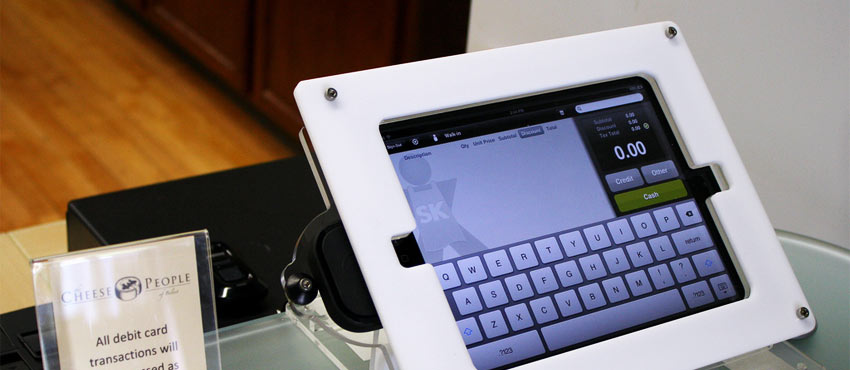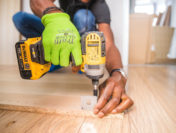Whilst the sound of a cash register might hold a certain nostalgic value for many ‘old-school’ business owners, the days of the conventional cash register have long since been and gone. Even the smallest businesses will now have their ’tills’ linked to a computerised system that tracks sales, inventory and more besides, these systems are referred to as ‘point of sale’ (POS) or ‘electronic point of sale‘ (EPOS) systems.

POS systems have become the standard for a reason; they are not only more reliable than conventional cash registers but they do so much more than just ring up sales. They process inventory, collate real-time information and keep track of customer activities.
What is a Point of Sale System?
In the most basic sense, a POS system is essentially a cash drawer and terminal attached to a computer system. The terminals will often include accessories such as barcode scanners, credit/debit card readers and receipt printers so that every aspect of a sales transaction can be carried out in one, swift movement (so to speak). POS system sellers will generally ship their terminals as -all-in-one’ solutions, but it is also possible for businesses to purchase components separately and configure their own systems.
Why use them?
POS systems have not only been proven to increase profits, but they can also streamline the manner in which your business operates. You’re also able to get immediate, reliable and accurate access to your stock levels, with an item subtracted from the inventory each time a sale is made. This means you should always know exactly when to order fresh stock as the system will alert you when an item is at its predetermined ‘reorder point’. POS systems are generally quite customisable too, which means that a good restaurant POS system could be quite easily configured to work as a good retail POS system. For example, in a retail scenario there could be thousands of products to keep track of, but in a restaurant scenario there might only be 30 or 40. A good POS system can be customised so that in the first instance the screen acts more like a ‘search engine’ and in the second instance it’s simply a touch-screen containing all the different potential menu items.
Inventory
By far one of the most frustrating and time consuming jobs in any restaurant or retail situation, taking inventory is nevertheless absolutely vital. Having too much or too little stock can prove inordinately costly and whilst a POS system could never (realistically) be as thorough or precise as a physical stock check, a POS system can be used in conjunction with the stock check. This is done by using portable, wireless scanners and will reduce the hours spent taking inventory significantly.
Customers
A POS system will also be able to track your regular customer’s activity and will be able to form an accurate account of their likes and dislikes. This will allow you to personalise their experience and make them feel more like a valued customer than a simple drone. For example, you could use the information that the system gathers to suggest new items a customer might be interest in or to send out vouchers and discounts via email or SMS message. Many modern POS systems are also designed with ‘point’ schemes in place, which allow return customers to amass a certain amount of points for each purchase that can be traded in for store credit, discounts or specific ‘prizes’. It all helps towards making the business feel like it really cares about its patrons.
What Should you be Looking For in Your POS System?
There are more POS choices on the market now than there ever have been, with costs ranging from the hundreds into the thousands, depending on the size and complexity of the system. Which you choose will depend very much on the size of your business and your business’s needs, but there are 3 general factors you should always consider.
Ease of use – The best POS systems should require next to no ‘learning period’. Thankfully, the majority of systems being produced today use touch-screens and simplified operating systems, meaning that you don’t need to spend valuable time putting all new employees through an intensive training program.
Functionality – The functions and features of any POS system are its bread and butter and not all systems will have the feature sets that you’ll need. Shop around, don’t be afraid to ask questions and of course, use the internet to do as much research as possible.
Expandability – You might be on a rather tight budget initially, so at first, you may only be able to afford a simple setup. As your business grows though, you will want to make sure your POS system has an element of expandability. This means upgradable software and firmware as well as a variety of possible accessories that you can add and swap around as your needs dictate.
About the Author: Chris Allen the CEO of Bepoz America spent the best part of his early twenties working in a variety of shops and restaurants and so is very well versed in a variety of POS systems as he also helped to create one himself.
Photo credit: OldOnliner



